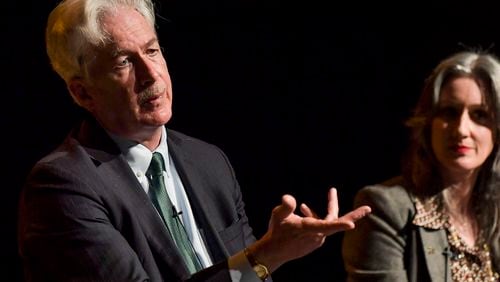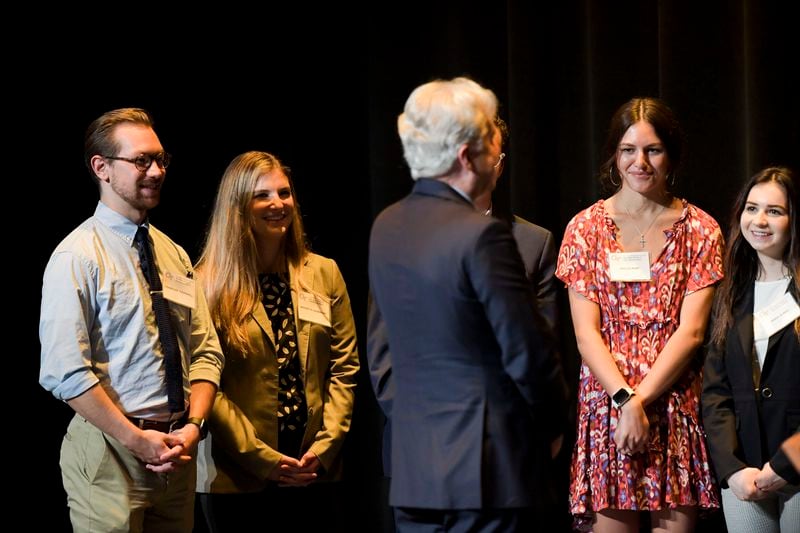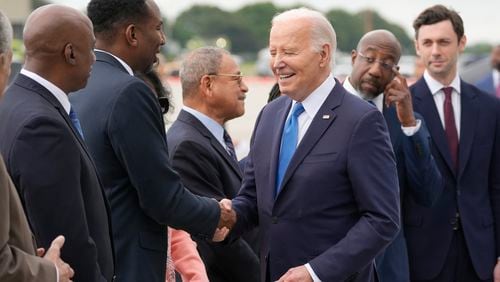CIA Director William Burns said Thursday in a speech at Georgia Tech the agency’s work in sharing intelligence about Russia was critical in galvanizing international support against its invasion of Ukraine.
Burns, in his first public speech as director, shared details about how the agency began gathering information last fall about Russian President Vladimir Putin’s plans to invade Ukraine. Burns said the intelligence was important in rebutting Putin’s claims that Ukraine provoked the conflict.
“I think we helped build credibility with our allies, which contributed to their willingness to step up and support Ukraine’s ability to defend themselves, and support much tougher sanctions than they may have originally imagined against Russia,” said Burns.
Credit: Daniel Varnado
Credit: Daniel Varnado
Ukrainian President Volodymyr Zelenskyy, while thankful for the intelligence, has repeatedly asked the U.S. for more weapons and a no fly zone over the country.
Burns, who was U.S. ambassador to Russia from 2005 to 2008, spoke about Putin’s “stubborn, almost mystical belief to restore Russia’s sphere of influence.” The CIA director said Putin thought Europe would be “distracted” before the invasion and miscalculated the resolve of the Ukrainian people.
Burns said he came to Georgia Tech in part to recruit students to work in the agency. Students from Georgia Tech, Atlanta’s historically Black schools, and other nearby universities were invited to the one-hour event where Burns spoke and answered a handful of questions.
About 500 people, mostly students, attended the event at the Ferst Center for the Arts on campus. The audience included some faculty members, staff and former U.S. Sen. Sam Nunn, who specialized in international affairs. Students asked questions about how the agency has changed its intelligence-gathering methods, the impact of climate change and how the U.S. can convince some nations it’s a better trading partner than China.
The agency has tried in recent years to increase its gender and racial diversity in response to criticism that the numbers are subpar in both areas. In 2020, women and minorities made up, respectively, about 40% and 27% of the intelligence community’s workforce, according to a report. Burns said a more diverse workforce is necessary for the agency to be successful globally.
“We cannot compete successfully in that landscape if everyone looks like me, talks like me and thinks like me,” he said.
Burns said he wants to speed up the hiring process, noting it has taken about 500 days for applicants to get hired. He hopes to get it down to 180 days.
Burns said several times he believes China poses the greatest geopolitical challenge to the U.S., noting it is the top trading partner to about 120 nations and it has hacked more than 150 American companies in the last few years. Other challenges include climate change and global health insecurity, he said.
“The CIA will have to reimagine itself to compete successfully in this new age,” he said.








